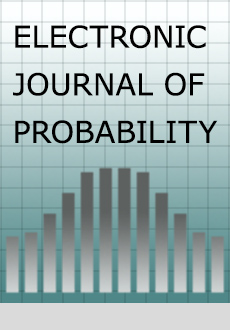Abstract
Disordered systems such as spin glasses have been used extensively as models for high-dimensional random landscapes and studied from the perspective of optimization algorithms. In a recent paper by L. Addario-Berry and the second author, the continuous random energy model (CREM) was proposed as a simple toy model to study the efficiency of such algorithms. The following question was raised in that paper: what is the threshold , at which sampling (approximately) from the Gibbs measure at inverse temperature β becomes algorithmically hard?
This paper is a first step towards answering this question. We consider the branching random walk, a time-homogeneous version of the continuous random energy model. We show that a simple greedy search on a renormalized tree yields a linear-time algorithm which approximately samples from the Gibbs measure, for every , the (static) critical point. More precisely, we show that for every , there exists such an algorithm such that the specific relative entropy between the law sampled by the algorithm and the Gibbs measure of inverse temperature β is less than ε with high probability.
In the supercritical regime , we provide the following hardness result. Under a mild regularity condition, for every , there exists such that the running time of any given algorithm approximating the Gibbs measure stochastically dominates a geometric random variable with parameter on an event with probability at least .
Funding Statement
Supported in part by grants ANR-20-CE92-0010-01 and ANR-11-LABX-0040 (ANR program “Investissements d’Avenir”).
Acknowledgments
We are grateful to an anonymous referee for several helpful suggestions improving the presentation.
Citation
Fu-Hsuan Ho. Pascal Maillard. "Efficient approximation of branching random walk Gibbs measures." Electron. J. Probab. 27 1 - 18, 2022. https://doi.org/10.1214/22-EJP800
Information





